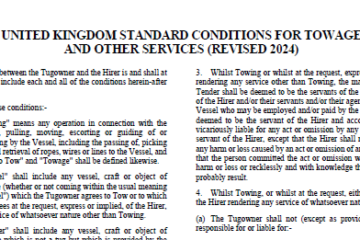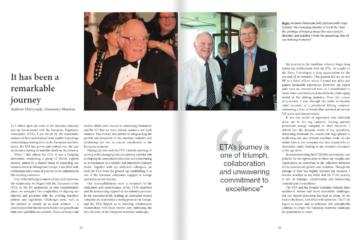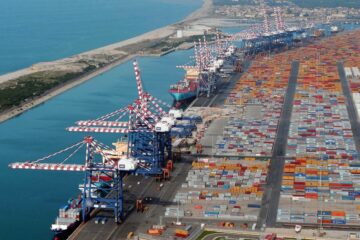The European Tugowners Association supports the European Commission’s (EC) endeavours to reduce emissions. Furthermore, as a sector, it is doing its utmost to reduce emissions of the industry.
As the EC rightly points out in its consultation, the term “offshore ships” can lead to various
interpretations among the stakeholders, which could jeopardise the uniform application of the
MRV Regulation.
Nonetheless, the list provided in Article 1 of the delegated act amending Regulation (EU)
2015/757 can create further ambiguity and unclarity in interpretation, including within the towage sector.
Ambiguity of the regulation
One vessel category indicated in the list is “offshore tug/supply vessel.” However, an Offshore Tug and an Offshore Supply Vessel are completely different vessels. Whereas the latter is a type of vessel carrying out an activity that is offshore, the former is a classification of a tug (and not a vessel type) and may carry out work that is not offshore; indeed, many times, such a vessel does not do offshore work.
The three main types of tugboats used in the maritime industry are conventional tugs, tractor tugs, and Azimuth Stern Drive tugs. An o shore tug is not a type of tug but rather a tugboat defined by its specifications/functions and application (purpose or use).
Certain tugs of a specific LOA, stability design criteria, bollard pull/accommodation and fuel tank capacity, escort notation, deck equipment including type of winch, stern rollers, firefighting capabilities, etc. are classed as fit for purpose also to be used (application) as an o shore tug. When this is the case and based on their application, your reference as ‘offshore tugs’ can be deployed as, being at the same time a “Harbour tug”:
- Escort tugs are used to escort and steer vessels to their destination.
- Auxiliary tugs providing support services for offshore and towing operations.
- Fire-fighting interventions and salvage/rescue purposes.
Furthermore, in the cases of a. and c. above, such work is carried out under the instructions and by the requirements of the Port Authority as these activities fall within the scope of work to be done under the contract with the Port Authority.
Proposed solutions for the Delegated Act
To remove the ambiguity stated above and to remove concerns of misinterpretation or different interpretations of the regulations.
The ETA recommends:
Replacing the reference to “Offshore Tug/ Supply Ship” with “Offshore Supply Vessel”. Since this will effectively capture vessels that carry out o shore work and supply offshore installations.
You can find the document with the ETA response here.



0 Comments